If freelancing had not been expanding on a permanent basis in the labor market, Workana would not have achieved a community of more than two and a half million members since 2012, and over a million projects posted on our platform.
Actually, 97% of clients and companies that have opened up to remote work –i.e. most of them, are convinced that this labor trend will keep on growing over the next five years.
Moreover, it is estimated that next year nearly 70% of the labor force will have the possibility to work remotely, with over twenty million smart devices available at households and business locations.
We want to know where exactly is this transition towards the new labor paradigm, and which is the impact of technology and digital tools on freelancing, both for companies and for professionals.
That is why on our Workana Report 2019 we have focused on doing some specific research to find out whether companies and freelancers are actually ready to face a digital transformation. Who is more prepared? Is there a gap between them? We have explored some revealing points.

The current relation between freelancers and companies/entrepreneurs
Companies and entrepreneurs are increasingly relying on independent talent, and independent talent is increasingly finding more tools to get new clients and projects according to their experience and interests, but the gap is still significant.
The freelancers/clients ratio at Workana is approx 10:1, which means freelancers have already fully grasped how it works contrary to what happens with potential employers. The big opportunity here is for companies willing to consider new agile work alternatives, as there’s a huge world of professionals waiting for that vote of confidence to show their amazing talent.
There is also a clear difference between freelancer profiles and the needs of companies. For instance, while 49.8% of clients are looking mainly for IT and Programming experts, just 19.3% of freelancers work in this area.

In the area Desing and Multimedia, demand is 24.8% and supply is 22.9%. For Sales and Marketing, the ratio is 11.9 to 9.8%, and regarding Writing and Translation, we can see one of the biggest gaps, for 22.9% freelancers do this and demand among clients is just 13.8%.
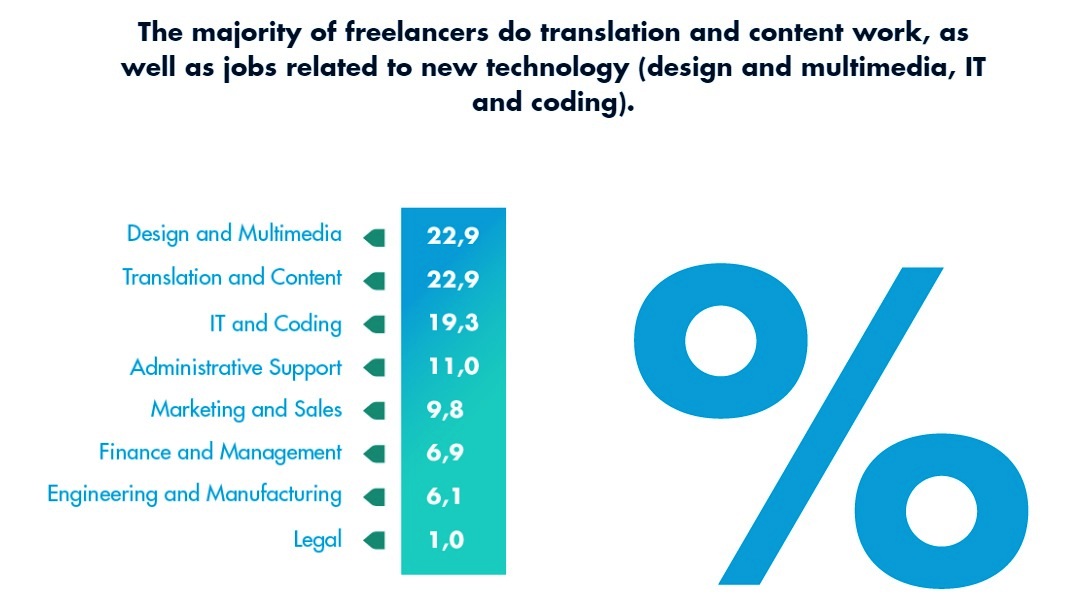
How prepared do companies feel to embrace freelancing?
According to 90% of respondents, technology has had a significant impact on how their companies developed, and most of them feel prepared to stay competitive in face of the impact of technologic innovation (67.4%), including changes in traditional methods of human resources management.
The flip side of this –65% thinks that a part of their team or all of it is still adapting to those changes and need some training to get prepared to face them.
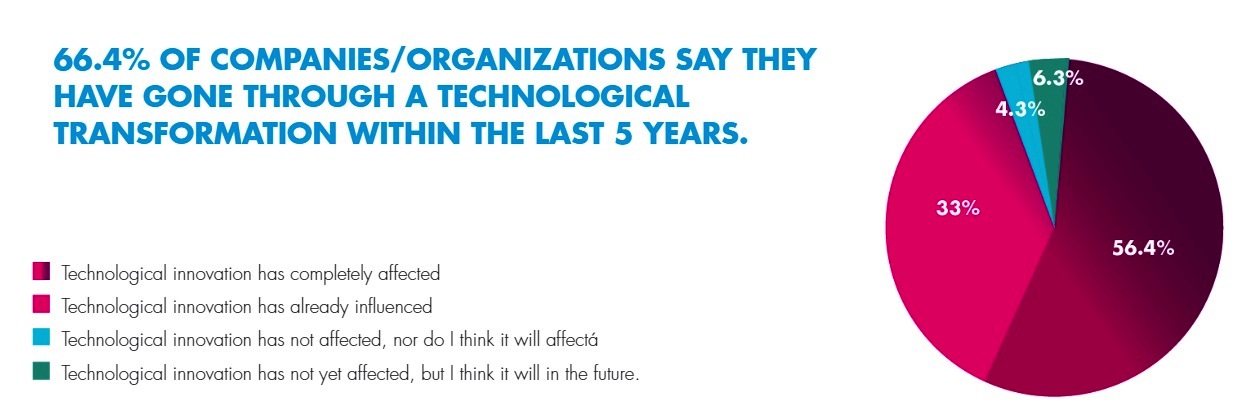
On the other hand, companies are starting to rely on freelance work so much that most of them resort to freelance talent as a way to get external specialized support to better focus on their business needs, important tasks or to carry out some specific projects, which used to be delayed.
Even though companies that manage to overcome a “traditional” approach find this type of decentralized talent as a way to extend their capacities, there are still many potential clients that don’t dare take the first step. In fact, 70% of clients have just started to work with freelancers, so there’s also a transition going on there.
How prepared do freelancers feel for a technological future?
Just as it happens with clients, professionals are very aware of the fact that technology has entirely changed their way of working. For many, technology makes it possible to work as freelancers.
A significant percentage considers they count on enough training and updated information, and a smaller percentage thinks they should get some more training. But most of them share an optimistic view as regards their own technological capabilities.
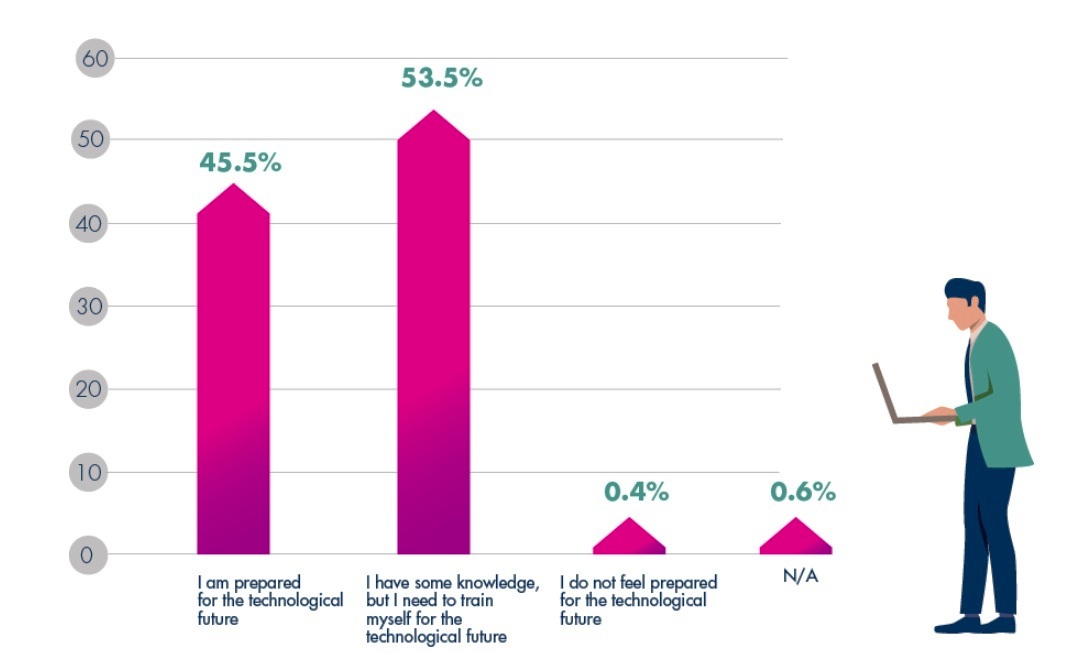
Communication problems are still one of the main fears of those companies that would like to work remotely. However, almost 80% of freelancers report that they achieve fluent communication through digital tools. Other advantages provided by technology:
- Access to innovative tools that make every process simpler and more efficient, adding value to their work.
- More and better access to information, contributing to learning, training, and exchange of ideas.
- More work opportunities and the possibility to reach more clients.
- Possibility to work from different locations across the world.
- Improved life quality and better work-life balance.
Freelancers are very aware of the permanent training needs in order to be up to date with the latest trends. That is why at least 73.4% of them has used, over the last year, some digital or e-learning platform to keep learning.
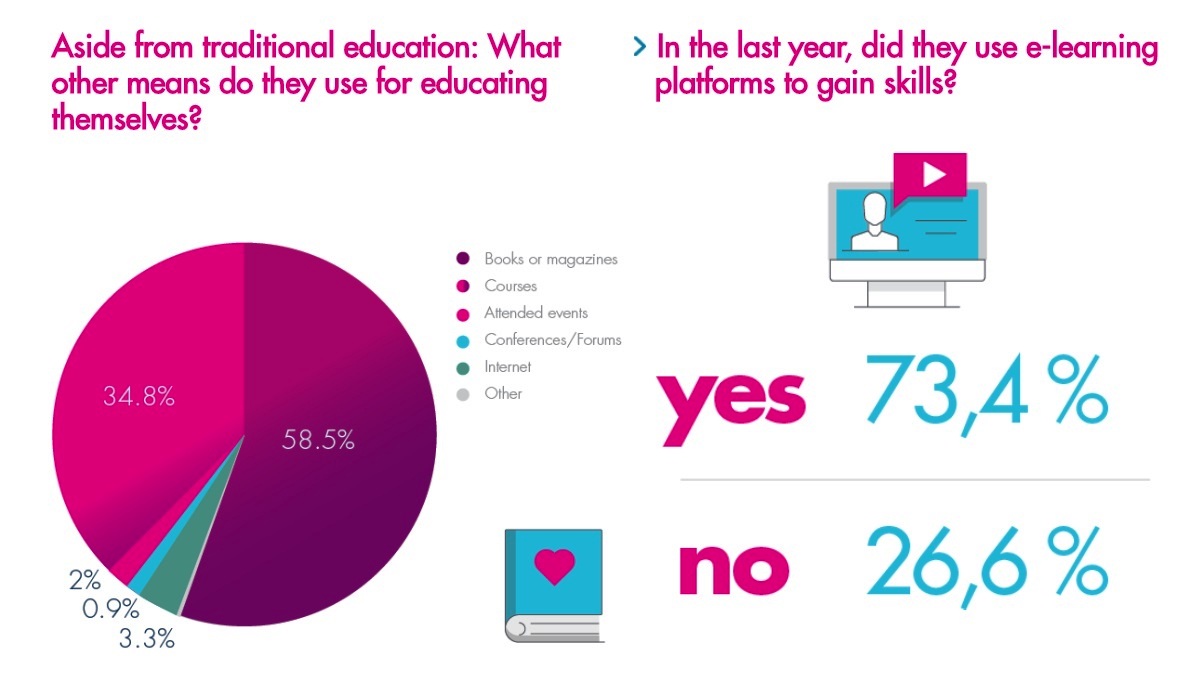
Mostly all of the respondents (98,6%) think that technological transformations will bring about positive scenarios for their work in the future and feel ready to face that situation. According to them, companies should start relying more on technology and on remote work, and the figures obtained from our report support this view.
The role of technology in the transformation of the work paradigm
It can’t be denied that along with the democratization of digital tools, increasingly more professionals can access the possibility to work on their own, and, at the same time, companies can hire new talent with no restriction of geography or time zone.
“Mostly all of freelancers participating from this survey (98%) think that online tools increases the possibility to get a joband actually prefer remote work. In fact, over 90% of these professionalsuse online tools and 63.2% resorts to them more than to offline tools”
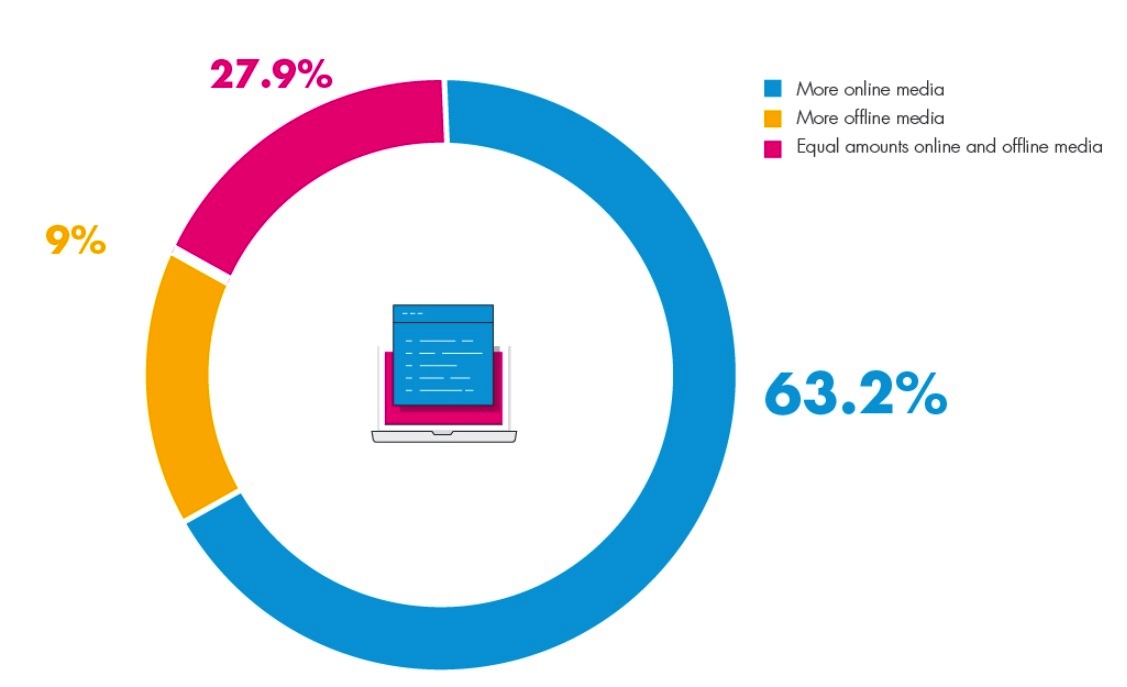
For 66% of companies, the last five years have been critical in terms of technological transformation, as it has had a strong impact, on three areas mainly: IT development, digital marketing and independent talent management. Most of them rely on following the path towards digitalization, although there’s still a significant gap to be covered, especially in connection to integrating independent talent to the daily business.
Which are the advantages that freelancers and clients find on digital platforms such as Workana?
Perhaps the decisive factor that pushed forward the growing trend of remote work was digital platforms, connecting freelancers to clients.
Actually, for 70% of freelancers and 60% of clients that use independent talent, these platforms are an excellent or very good tool to cover all their needs. And if we refer to Workana in particular, we see that the total client satisfaction level increases to a surprising 86%.
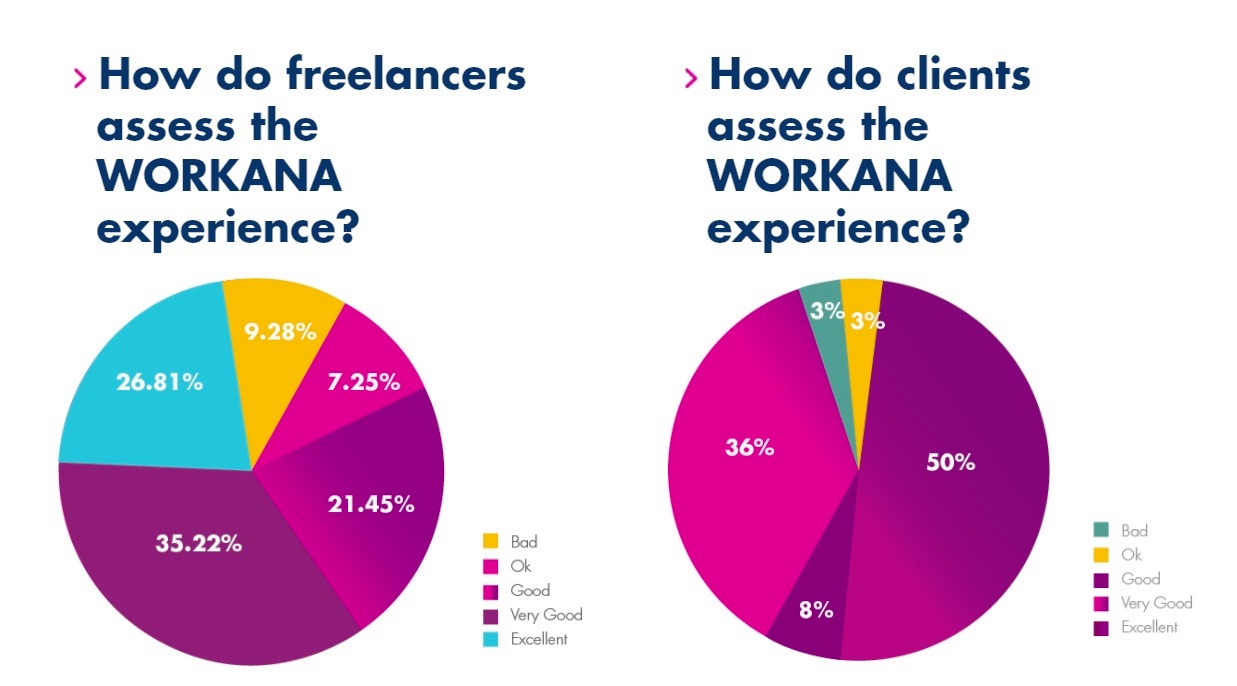
Freelancers especially value:
- The guarantee that they’ll get paid
- The possibility to access clients easily
- An important increase in the number of projects they get
- The network of contacts and clients as a reference to their fields
And clients value:
- The great variety of bids on the same site
- The simple and safe payment process
- The possibility to deal with well-trained professionals for specific projects
In conclusion…
Everything seems to say that freelancers are readily available to start steadily into the future of work. The gap is stronger with clients, who don’t fully rely yet on more agile ways of working or can’t persuade their companies of the need to change.
However, it’s also clear that this is a transition stage since more and more professionals and companies are embracing this labor paradigm every day, either partially or totally. Then, our mission is to contribute our tiny share in order to make this transformation as soon and smooth as possible, for we will all benefit from it.
—
You might also be interested in:
- Workana Report 2019: Why do professionals keep going freelance?
- Digital Transformation: Can remote professionals be the key to taking the next step in your business?
- Success Case: How freelancers became a world of new possibilities for big multinationals like Veeder-Root.





